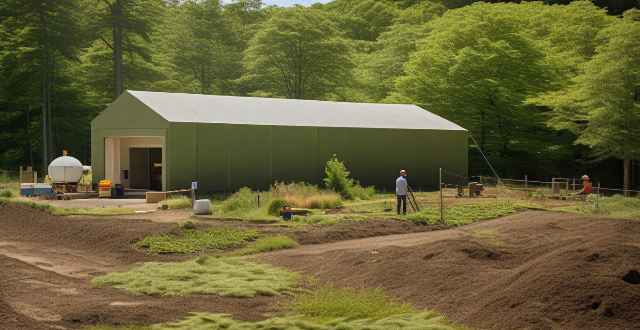The greenhouse effect is a natural process that warms the Earth's surface by trapping heat from the Sun. However, human activities have increased the concentration of greenhouse gases in the atmosphere, leading to an enhanced greenhouse effect and global warming. This has resulted in rising global temperatures, melting ice caps and glaciers, more frequent and severe extreme weather events, changes in ecosystems and biodiversity, and ocean acidification. To mitigate these effects, it is crucial to reduce our reliance on fossil fuels, promote renewable energy sources, protect forests and other natural habitats, and adopt sustainable practices in agriculture and industry.

The Greenhouse Effect and Its Impact on Climate Over Time
The greenhouse effect is a natural process that warms the Earth's surface. It occurs when certain gases in the atmosphere, known as greenhouse gases (GHGs), trap heat from the Sun. Without the greenhouse effect, the Earth would be too cold to support life as we know it. However, human activities have increased the concentration of GHGs in the atmosphere, leading to an enhanced greenhouse effect and global warming. This article will discuss how the greenhouse effect has affected the climate over time.
Natural Greenhouse Effect
The natural greenhouse effect has been essential for life on Earth since its formation. Before the industrial era, the concentration of GHGs was relatively stable, and the climate was generally stable as well. The natural greenhouse effect helped maintain a balance between incoming solar radiation and outgoing infrared radiation from the Earth's surface.
Human-Induced Greenhouse Effect
Since the Industrial Revolution, human activities such as burning fossil fuels, deforestation, and agriculture have significantly increased the concentration of GHGs in the atmosphere. This has led to an enhanced greenhouse effect and global warming. The following are some ways the greenhouse effect has affected the climate over time:
1. Rising Global Temperatures
The enhanced greenhouse effect has caused global temperatures to rise steadily since the pre-industrial era. According to NASA, the global average temperature has increased by about 1.8°F (1.0°C) since 1880. This may seem like a small change, but it has significant consequences for the climate and ecosystems.
2. Melting Ice Caps and Glaciers
As global temperatures rise, ice caps and glaciers are melting at an alarming rate. This leads to rising sea levels, which can cause flooding in coastal areas and threaten low-lying islands and cities. The loss of ice also affects ocean currents and weather patterns.
3. More Frequent and Severe Extreme Weather Events
The enhanced greenhouse effect has made extreme weather events more frequent and severe. This includes heatwaves, droughts, floods, hurricanes, and wildfires. These events can cause significant damage to infrastructure, agriculture, and human life.
4. Changes in Ecosystems and Biodiversity
As temperatures rise and weather patterns change, many species are forced to adapt or face extinction. Some animals may move to higher altitudes or latitudes to escape the heat, while others may struggle to find food or suitable habitats. This can lead to changes in ecosystems and a loss of biodiversity.
5. Ocean Acidification
The oceans absorb much of the excess carbon dioxide produced by human activities. This makes the water more acidic, which can harm marine life such as coral reefs, mollusks, and plankton. Ocean acidification also affects fishing industries and coastal communities that depend on healthy oceans.
Conclusion
The greenhouse effect is a natural process that has been essential for life on Earth. However, human activities have enhanced this effect, leading to global warming and numerous negative impacts on the climate and ecosystems. To mitigate these effects, it is crucial to reduce our reliance on fossil fuels, promote renewable energy sources, protect forests and other natural habitats, and adopt sustainable practices in agriculture and industry. By taking action now, we can help preserve a habitable planet for future generations.